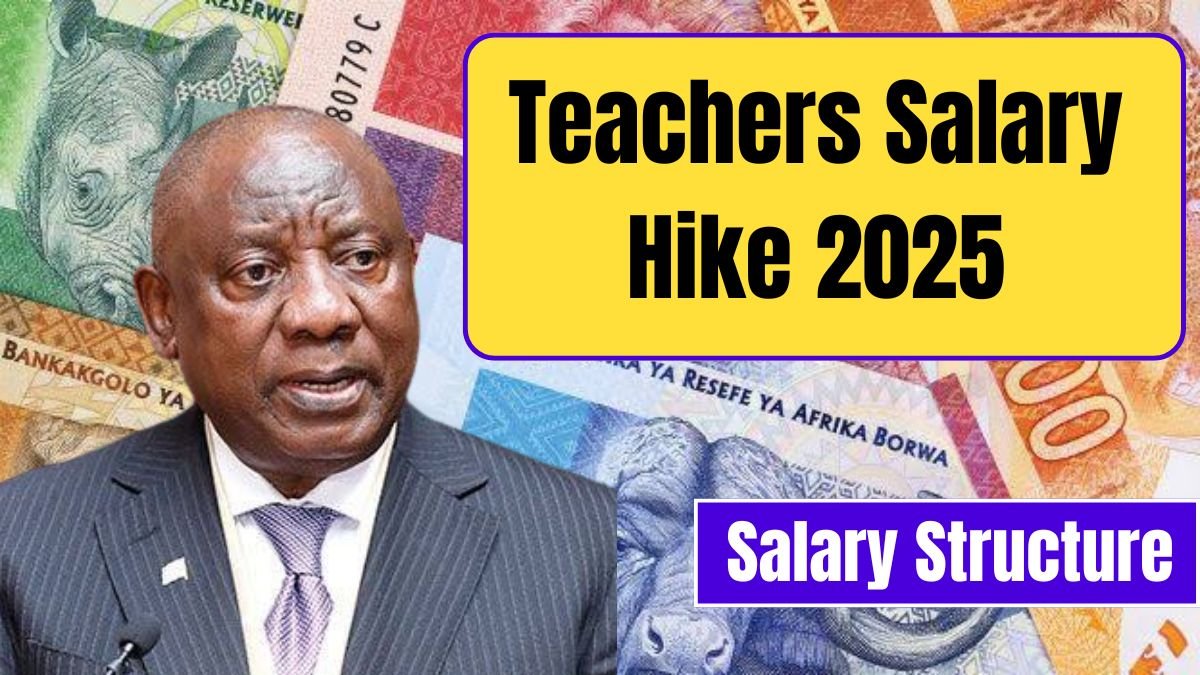The 5.5% salary increment into the April 1, 2025, window for South African education teachers is one of many. It is a three-year-girder. Fluctuating inflation leads teachers to basic retention laws. The Basic Education Department has since released the new New Salary Tables, underlining the government, is placing premium value upon educators in the building of the future of the nation.
South African Teachers Revised Salary Structure
This increase enables salary hikes for the entire gamut of salaries in public education-from entry-level teachers right up to principals-based on the Relative Education Qualification Value (REQV) system. This system classifies educators by qualifications and experience: REQV 10-12 is assigned to an educator with perhaps only matric and basic training, REQV 13 is that of a three-year diploma holder, while those with university degrees or postgraduate qualifications fall under REQV 14-17. With 432 salary notches available, entry-level teachers are now paid at R163,179 annually (which is about R13,600 on a monthly basis) instead of R154,671 in 2024. The senior classroom teachers will now earn almost R763,200 per annum, while principals can go up to R1,275,789 per annum.
Other benefits for teachers
In addition to basic salaries, teachers have benefits that include the pension contribution of 13%, medical aid subsidies, housing allowances, and annual bonuses. These benefits further increase their remuneration levels and make teaching more attractive. This benefits package assumes pivotal importance by virtue of South Africa facing critical teacher shortages in subjects such as mathematics, with 464 public schools reporting that they do not have any teachers qualified in mathematics.
Union and Government Perspectives
Teacher unions such as SADTU have welcomed the salary adjustment as a positive recognition of the educators’ important role. However, they have gone on to say that salary improvement would still be meaningless unless it addresses the shortage of teachers, working conditions, and so forth. The Agreement provides for CPI-linked salary adjustments in 2026 and 2027 restricted to a ceiling of 6% and a floor of 4% so as to ensure the salaries remain in step with inflation.
Dilemmas in the Education Sector
Despite the pay increase, South Africa’s education system continues to have some very hard issues to face. Schools are still under-resourced; teachers are moving where they want whenever they desire; and shortages in high-priority subjects, such as mathematics and science, are very acute in rural areas. The 2024 education budget allocation of R25.7 billion does instil confidence in investment, yet experts call for strategic efforts to improve teacher training and recruitment further to guarantee quality and equity in education.
Looking Ahead
With the 2025 salary hike comes a bigger picture view of valuing teachers and solving educational problems. It hopes to generate motivation and lure fresh talent, whereas long-term success lies in holistic reforms. Educators are encouraged to check salary placement and provide updated details to the school payroll office to ensure proper implementation. As South Africa grapples with economic and educational issues, this adjustment is a small step towards recovery, but continuous measures are necessary for profound change.
Also Read: SASSA Reveals Surprise Bonuses for August – Millions Of People Will Get Benefit On This Date





